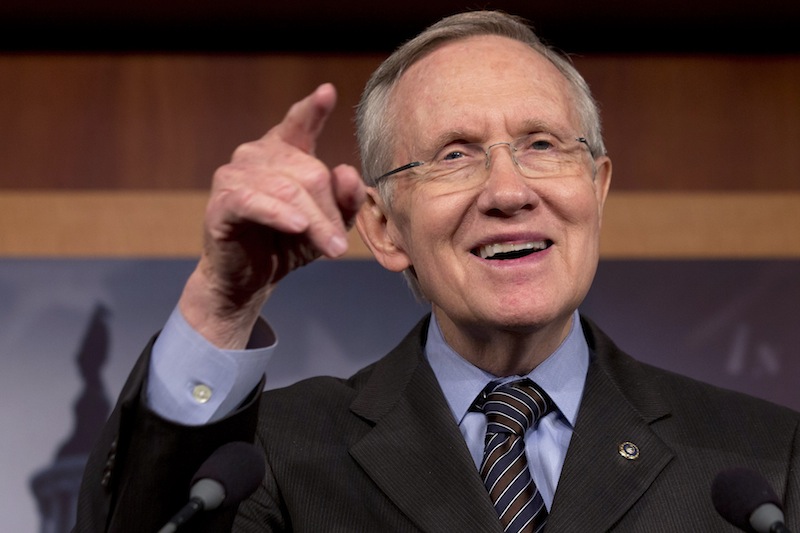It’s easy to assume that that debate about Harry Reid’s recent invocation of the “nuclear option” to limit the use of the filibuster on judicial nominations is yet another inside-the-beltway sideshow with little relevance to anyone except senators and policy wonks. But recent research that I’ve conducted with several colleagues (Peter Enns at Cornell University, Jana Morgan at the University of Tennessee, Thomas Volscho at CUNY-Staten Island and Christopher Witko at the University of South Carolina) suggests that nothing could be further from the truth.
We have discovered that aspects of the U.S. political system that contribute to political gridlock – of which the filibuster is one prominent example – helps the super-rich gain while the rest of us fall behind.
First, some background. The U.S. political system makes it harder to change policy when compared with many other nations. Two key provisions of the Constitution make policy change challenging – a two-house Congress and separation of powers.
And then there’s the filibuster that everyone’s been talking so much about. The filibuster is a mechanism in Senate rules that, when utilized, turns the upper chamber of the U.S. Congress into a super-majoritarian institution. Instead of needing 51 votes to win, you need 60. It doesn’t take much insight to understand that these aspects of the U.S. system make compromise and consensus essential for policymaking. And anyone paying attention at all knows that compromise in Washington has become nearly impossible as the ideological divide between Republican and Democrats has steadily increased over the past several decades.
We observed that just as consensus among U.S. policymakers was diminishing, income concentration was increasing, so much so that the richest 1 percent of Americans now takes home 22.5 percent of all income. We were doubtful that this was a coincidence, and our intuition was that declining consensus produced obstacles to action thereby making it more difficult to fashion new policies or revise old ones to counter rising income inequality. We also wondered if institutional stasis might to feed on itself, with hurdles to policymaking exacerbating inequality to a greater extent as the gap between the rich and the poor grows. If incomes were becoming more equal, then doing nothing new would matter only to actors who want greater inequality. But when inequality is increasing, stasis might allow the process to accelerate.
We gathered data and developed measures to test our ideas about gridlock and trends in income concentration from 1940 to 2006. The key results show that rules and institutional obstacles explain more than 50 percent of variation in the top income share over this period. As the ideological preference of the Senator whose vote is needed to overcome a filibuster diverges from the average member of the Senate, the income share going to the top one percent increases.
The fewer important laws Congress enacts, the more income flows to those at the very top. As the top share of the economic pie grows, the filibuster and Congressional foot-dragging do even more to boost income flows to the top one percent. Limiting the use of filibusters to legislative matters and Supreme Court nominations likely won’t have much effect on policy gridlock in Washington.
It’s tempting to view the nuclear option as an intriguing power play by Democrats, a shift of power from the legislative to the executive branch, or a restructuring of the nomination process to bring some degree of efficiency. But the nuclear option and the filibuster provision in Senate rules that it targets is more broadly part of a policymaking system that is biased toward stasis, and this bias has consequences for who gets what in the American economy.
Only the very rich benefit from today’s anti-majoritarian, gridlocked government. The recent reforms merely scratch the surface of what would be needed to overcome policy gridlock and enhance the likelihood of egalitarian policy change.
Our research suggests that expanding filibuster reform beyond presidential appointments to substantive policy debates could have important implications for the future of American income inequality. While increasing the pace of policymaking could open the door to either egalitarian or inegalitarian policy shifts, history teaches us that in practice faster policy change would benefit those seeking to balance the scales between rich and poor.
Nathan Kelly is a professor at the University of Tennessee and a member of the Scholars Strategy Network.






